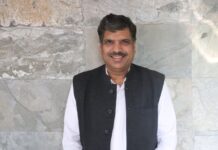While the government has finally come out with a premium cost, of around Rs 1,000-1,200 per family for the proposed plan— had this been announced earlier, it would have prevented speculation on the costs—it underscores how vital it is to structure the programme right.
New Delhi, February 06, 2018:Finance minister Arun Jaitley has done well to clarify that the new health insurance scheme the Budget talks of will not involve getting hospitalised and then claiming a reimbursement since, as he said, this makes the scheme very messy—and, presumably, prone to abuse. Where the plan gets problematic, however, is in not wanting to charge the 10 crore households that will be covered under it. Even if the poor don’t pay much, once they do, this gives them ownership and is the only way to ensure they will demand service from those running it. That is why, for all other insurance schemes begun by the government, including that for life insurance, make the poor contribute towards the premium. Why this one should be any different is not clear. While the government has finally come out with a premium cost, of around Rs 1,000-1,200 per family for the proposed plan— had this been announced earlier, it would have prevented speculation on the costs—it underscores how vital it is to structure the programme right.
The RSBY costs around Rs 500-600 per family but gives just a Rs 30,000 cover against the Rs 5 lakh in the new one—does this mean RSBY was a rip-off or that, increasing the number of families insured from 3.6 crore (for RSBY) to 10 crore makes the premium fall so dramatically? Since the new plan is loosely modelled on Karnataka’s Yeshasvini—the total value of surgeries allowed under that scheme are worth more than Rs 5 lakh—it would do well to learn from that scheme. It goes without saying, that with such large volumes, the government has to negotiate the best deal for all operations, down to possibly 30-40% of commercial rates available according to financialexpress.com.
Healthcare experts, however, say that if the scheme is not restricted to select surgical procedures, its costs can quickly spiral out of control. A person suffering from dengue also needs hospitalisation, but if such illnesses are to be included in the scheme, there will be no stopping, and it is difficult to set protocols for too many varied diseases; and expensive solutions like, say, a cochlear implant have to be kept out since a hearing aid can often do much the same thing at a fraction of the cost. While the government can pay for surgical procedures, it must use its bargaining power to ensure, for instance, that all OPD facilities will be 50% cheaper for those covered—that way, patients get a benefit, but the system is less prone to abuse. Equally critical, the scheme has to be accompanied by intensive primary care facilities.
Clearly, insurance companies lose if more patients get operated and, if this happens, they will jack up the premium—but if there is intensive monitoring of patients to ensure they have regular check-ups and take their medicines on time, this will lower surgery costs. While the finance secretary has said that either an insurance or a trust model can be followed, Yeshasvini is administered by the government directly, to keep costs low and to closely monitor the scheme. The new scheme has to benefit the poor, not make private hospitals salivate at the mouth financialexpress.com further added.























